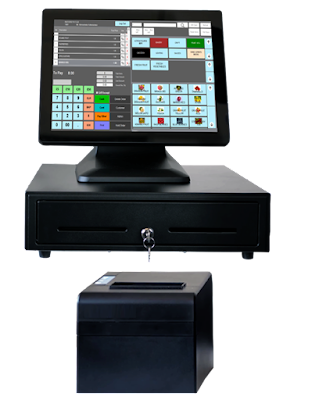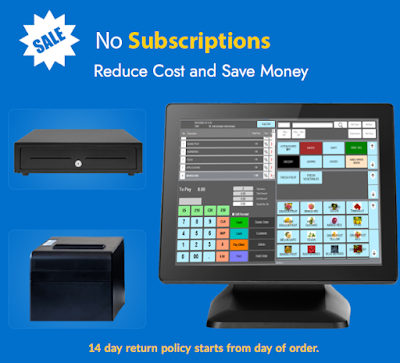The retail landscape has undergone a significant transformation over the years, and the evolution of retail tills in the UK has played a vital role in enhancing the shopping experience in London. From traditional cash registers to modern, technologically advanced point-of-sale systems, these innovations have revolutionized the way businesses operate and interact with their customers.
In the
early days of retail, cash registers were basic machines used to calculate and
record sales transactions. They relied on mechanical mechanisms to add up
prices and determine the total amount owed. These tills were often slow and
prone to human error, leading to inefficiencies and frustration for both
customers and store owners.
However,
with the advent of technology, the retail tills began
to undergo significant changes. The introduction of electronic cash registers
in the 1970s marked a turning point in the industry. These machines replaced
the mechanical components with electronic circuits, making them faster and more
accurate. Electronic cash registers also enabled the use of barcodes, allowing
for easier and more efficient product scanning.
The rise
of the personal computer in the 1980s brought further advancements to retail POS systems. With the integration of computers into businesses,
point-of-sale systems began to emerge. These systems combined the
functionalities of cash registers with advanced software, providing businesses
with more comprehensive sales tracking, inventory management, and reporting
capabilities. The introduction of touch screens further simplified the user
interface and improved ease of use.
In recent years, London has witnessed a wave of technological advancements in the retailtill system, aimed at enhancing the shopping experience. One notable development is the widespread adoption of mobile point-of-sale (mPOS) systems. These portable devices, such as tablets and smartphones, have empowered store associates to serve customers from anywhere within the store. By eliminating the need for customers to queue at a fixed checkout counter, mPOS systems have reduced waiting times and created a more personalized and efficient shopping experience.
Moreover,
contactless payment technologies, such as Near Field Communication (NFC) and
mobile wallets, have gained popularity in London's retail landscape. These
payment methods allow customers to make secure and swift transactions by simply
tapping their cards or mobile devices on the payment terminal. The convenience
and speed of contactless payments have contributed to shorter queues, seamless
transactions, and an overall enhanced shopping experience for consumers.
Another
significant development in retail tills is the integration of customer
relationship management (CRM) systems. By connecting the retail epos system with a CRM platform, businesses can capture valuable
customer data, such as purchase history and preferences. This information
enables retailers to personalize the shopping experience, offer targeted
promotions, and build stronger customer relationships. For instance, a customer
returning to a clothing store might be greeted with personalized
recommendations based on their previous purchases, creating a sense of
familiarity and enhancing customer loyalty.
Furthermore,
advancements in artificial intelligence (AI) and machine learning have opened
up new possibilities for retail tills. AI-powered systems can analyze customer
behaviour and provide real-time recommendations, cross-selling, and upselling
opportunities. These intelligent tills can also automate inventory management,
ensuring that popular products are always in stock and minimizing the chances
of disappointing customers.
London's retail POS has come a long way, evolving from basic cash registers to
sophisticated, technologically advanced systems. The transformation has not
only improved efficiency and accuracy but has also enhanced the overall
shopping experience for consumers. From mobile point-of-sale systems to
contactless payments and AI-driven recommendations, these innovations have
created a seamless and personalized journey for shoppers in the bustling city.
Looking ahead, the evolution of retail till in
London is expected to continue. Advancements such as facial
recognition technology, voice-activated assistants, and augmented reality
integration hold the potential to further revolutionize the shopping
experience. As retailers strive to stay competitive and meet the evolving
demands of customers, the evolution of retail tills will remain at the
forefront, continually enhancing the way Londoners shop and interact with
businesses.





No comments:
Post a Comment